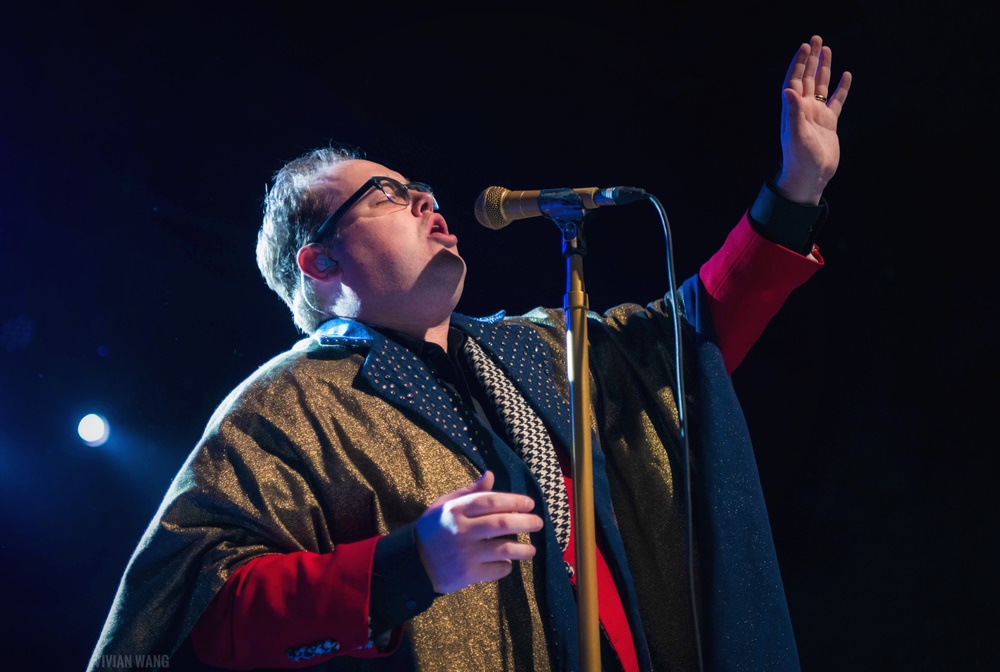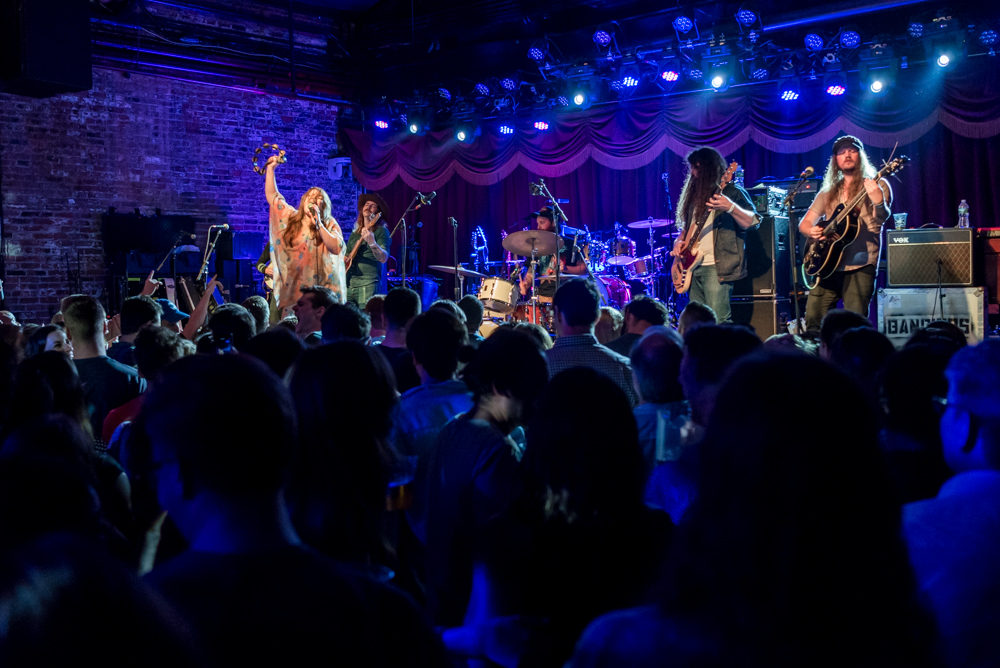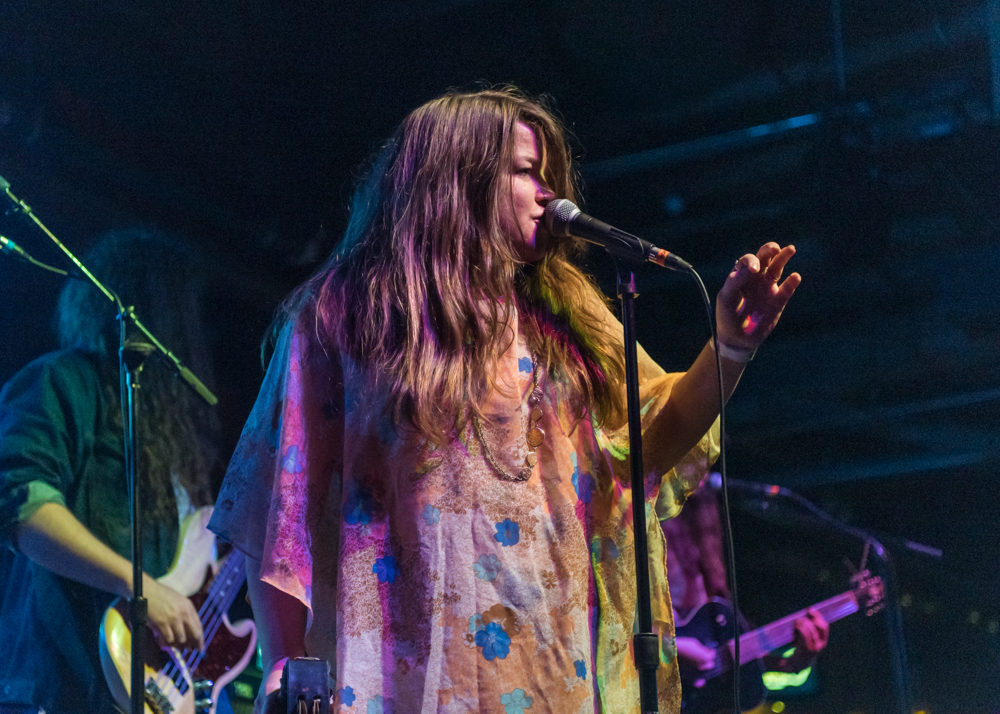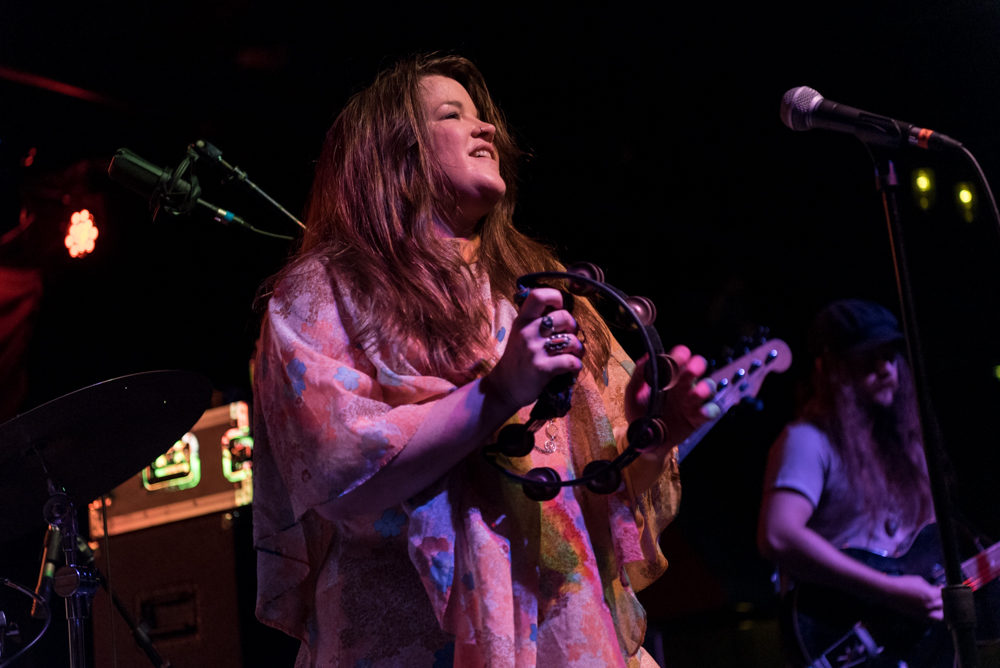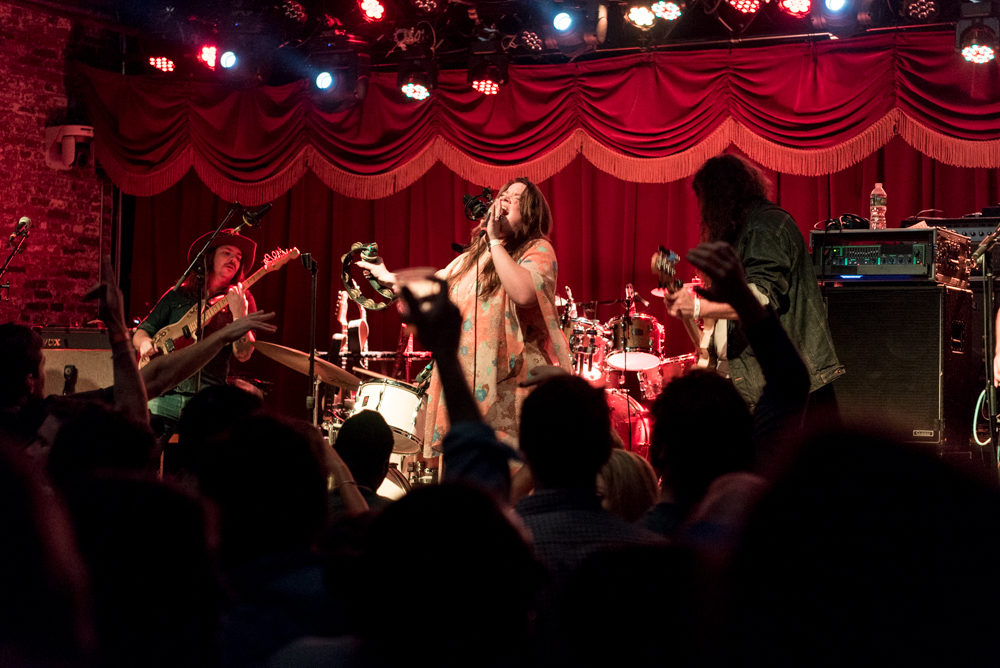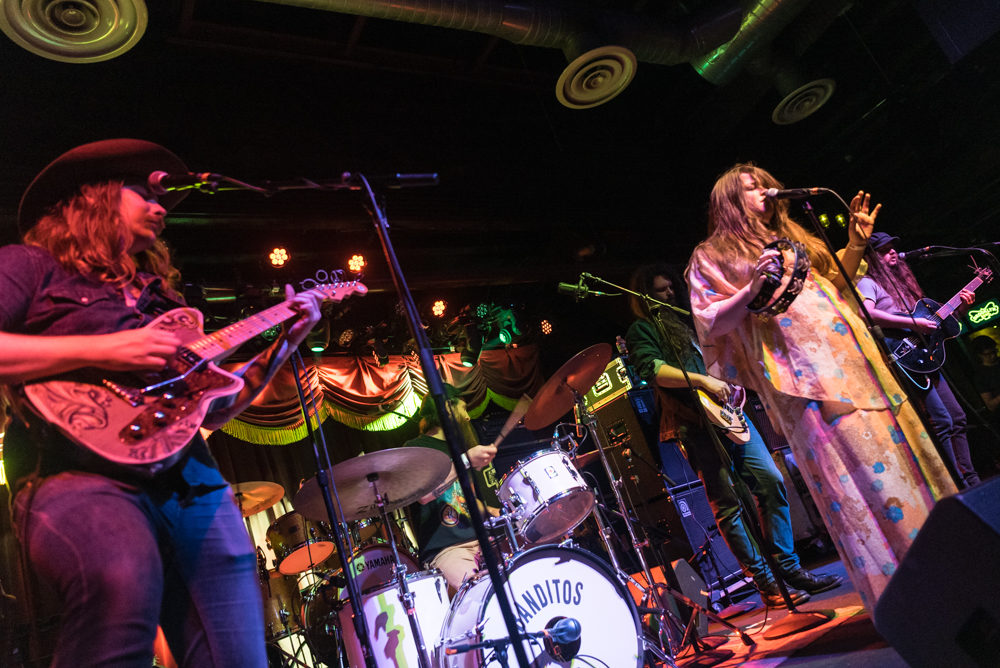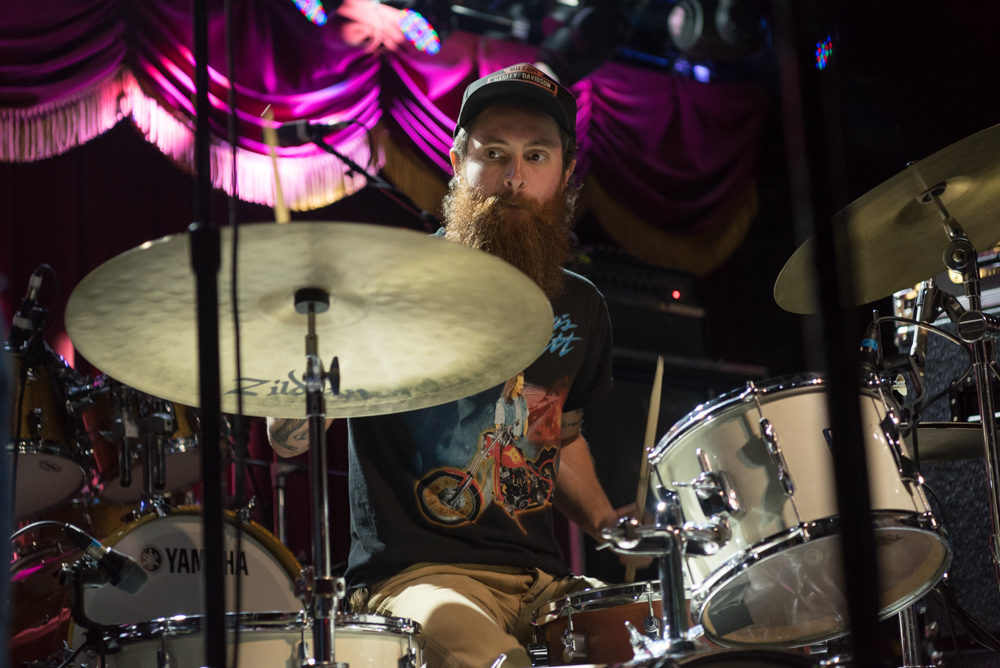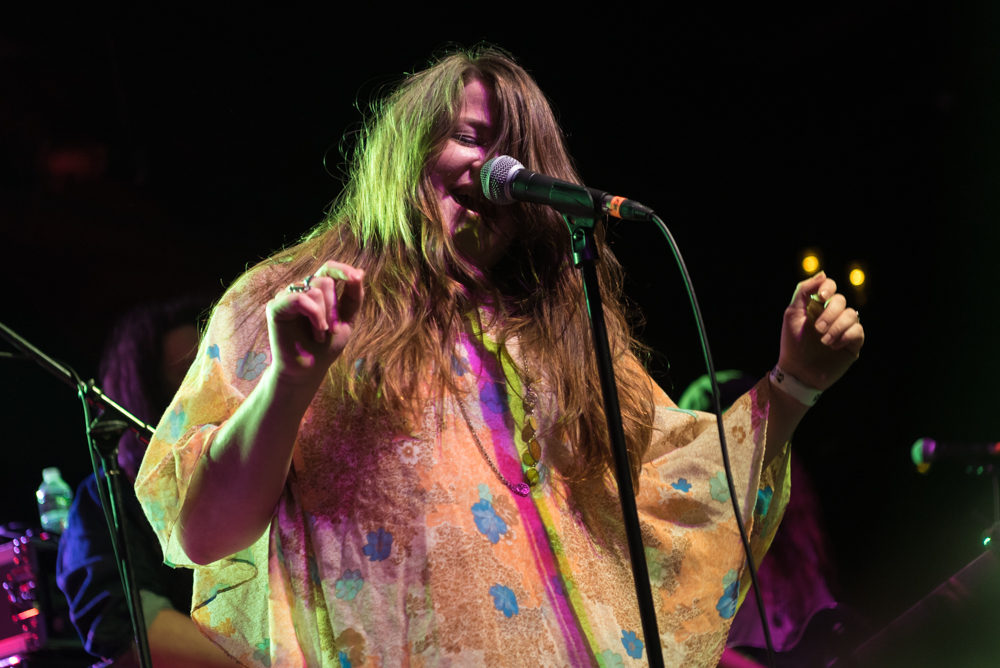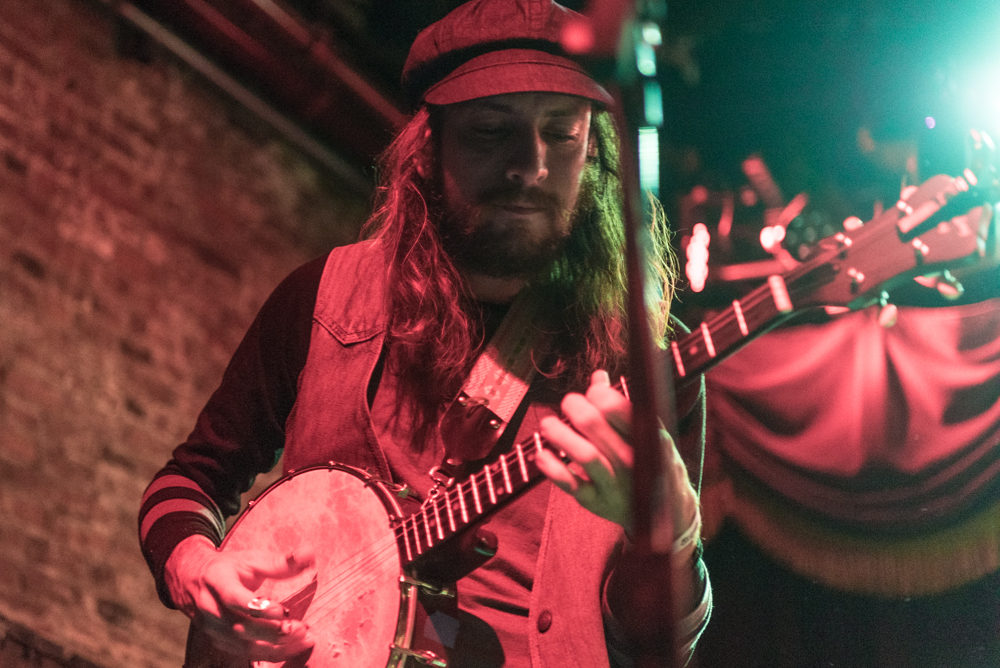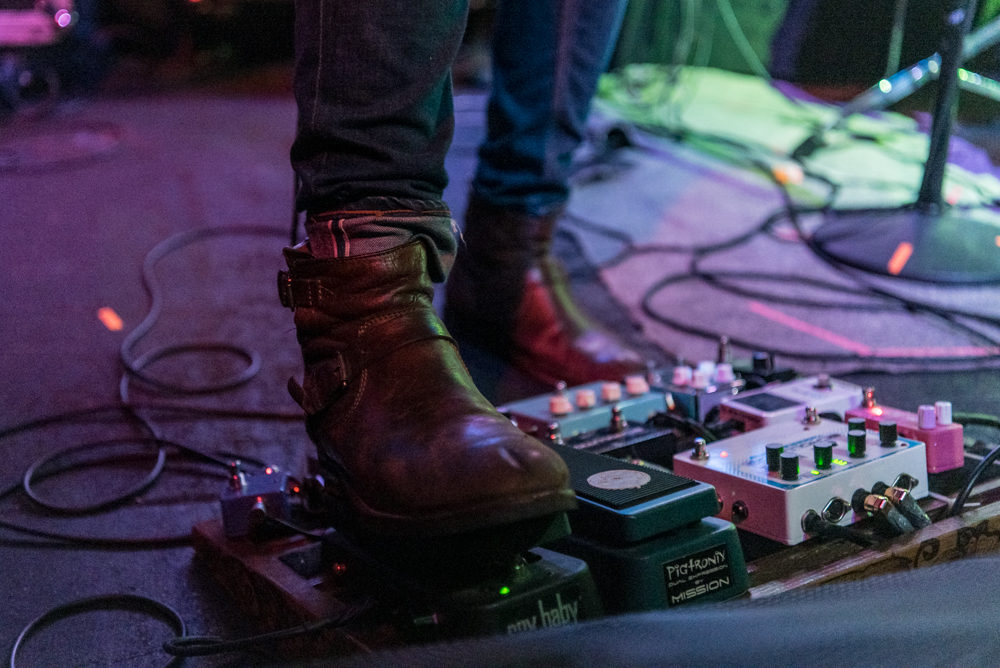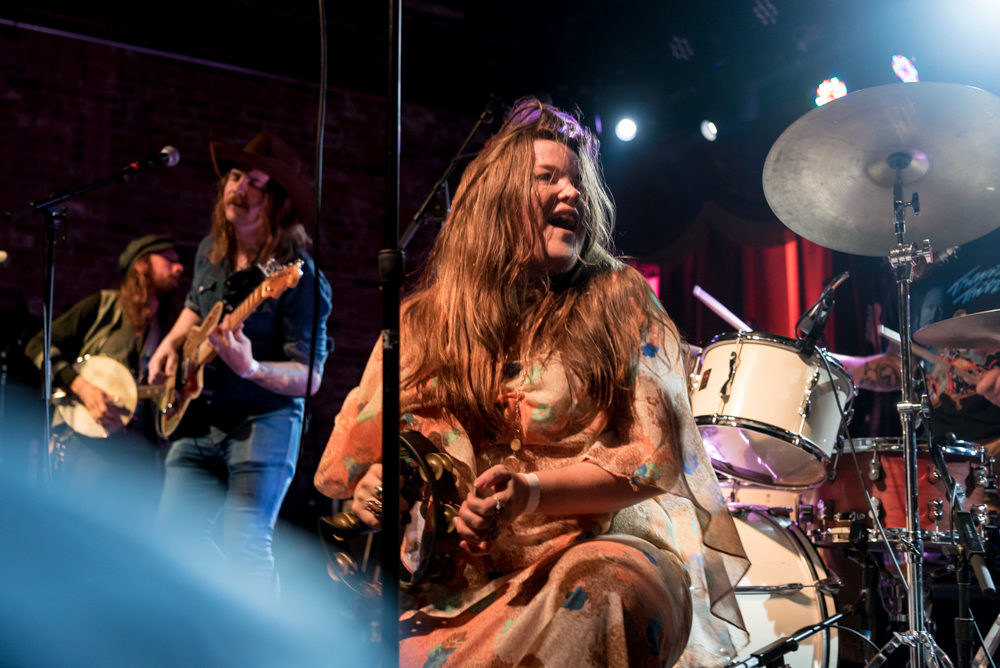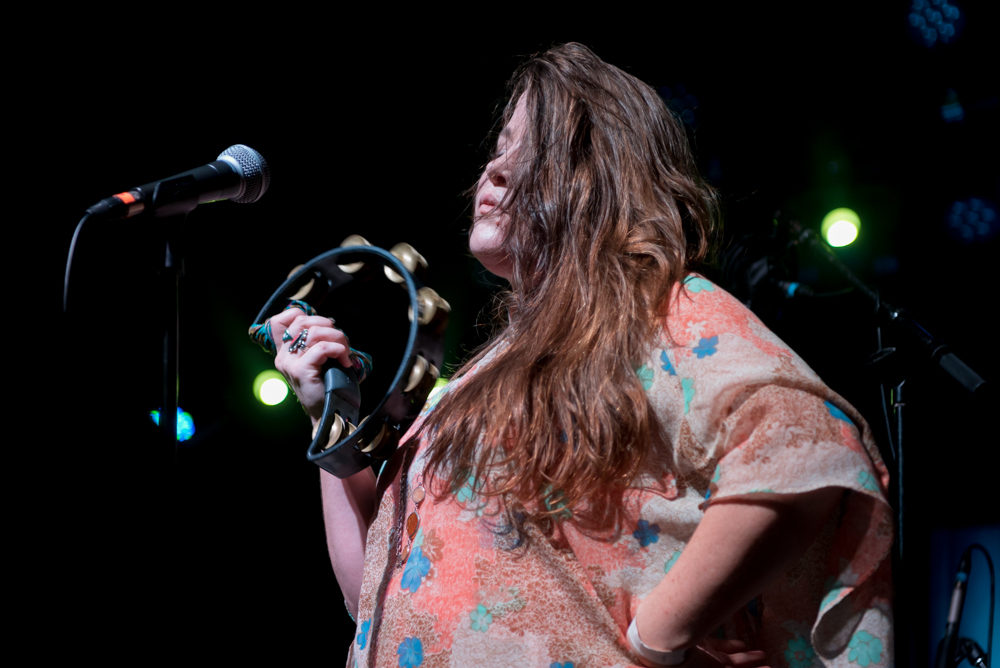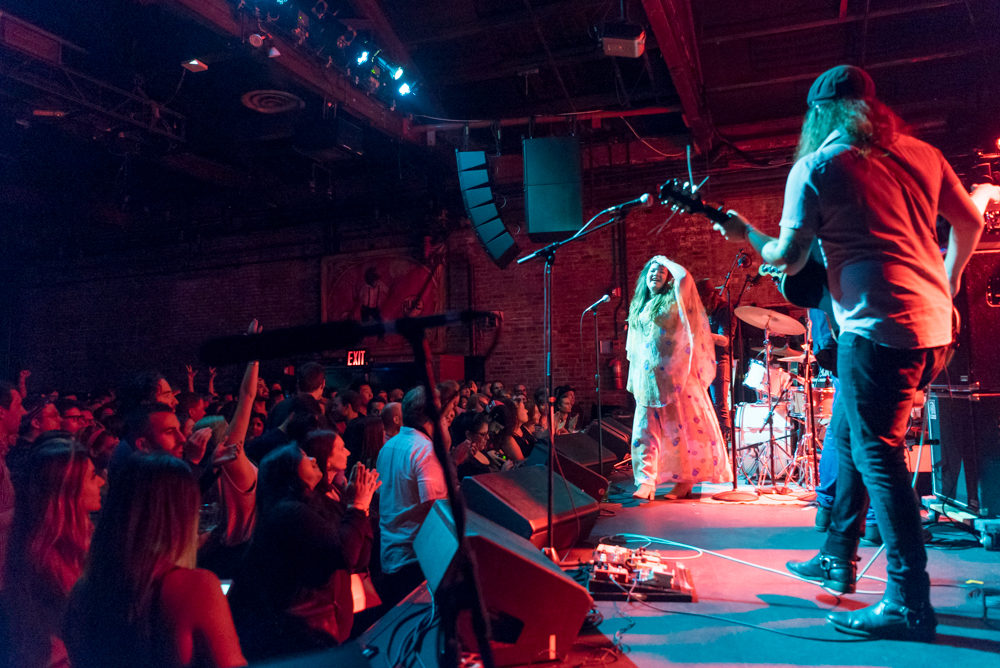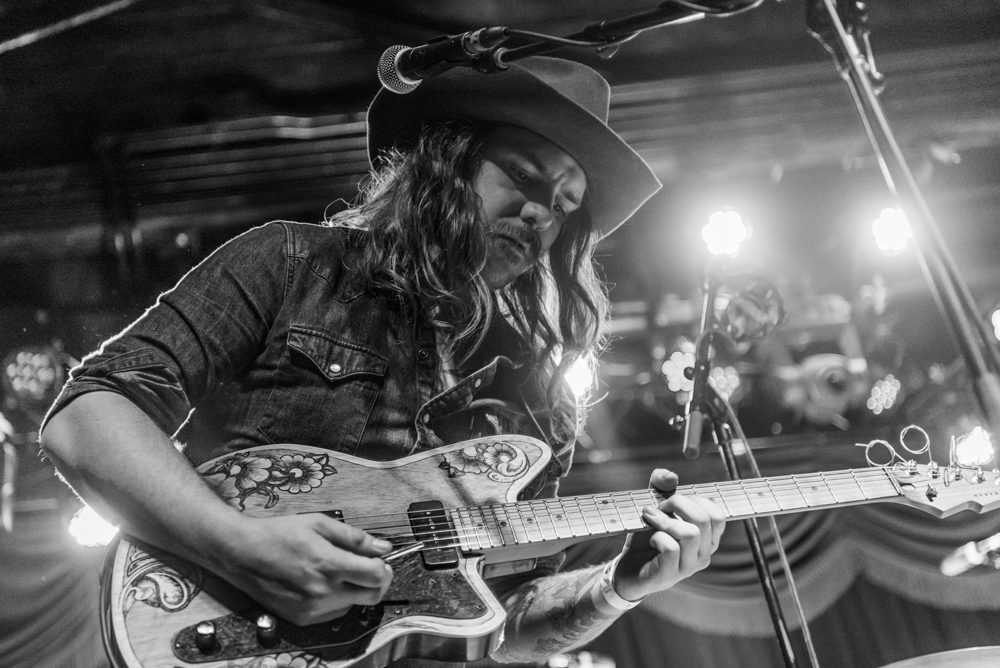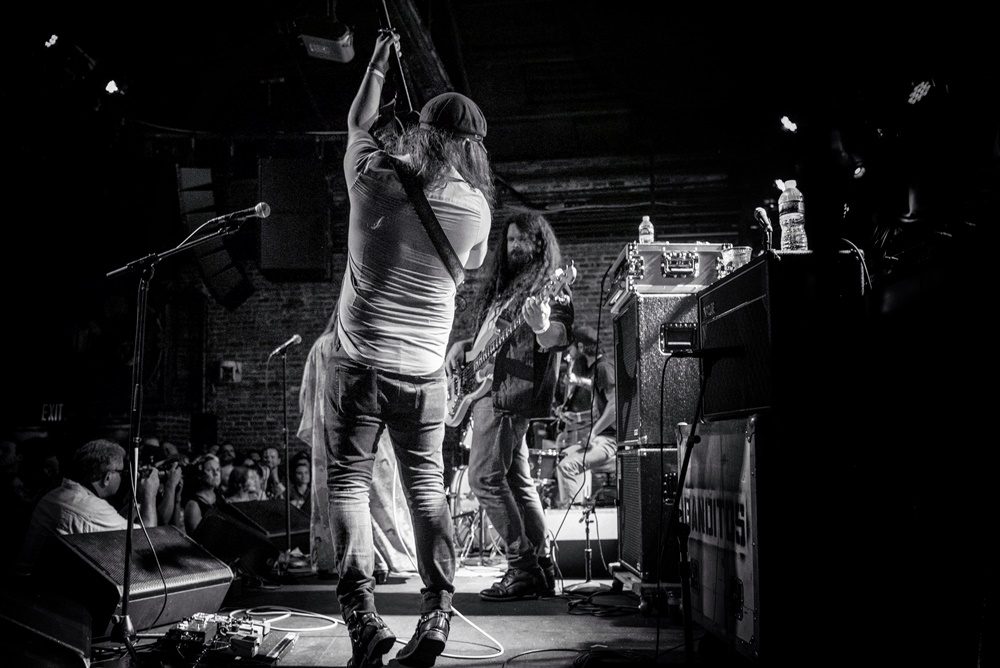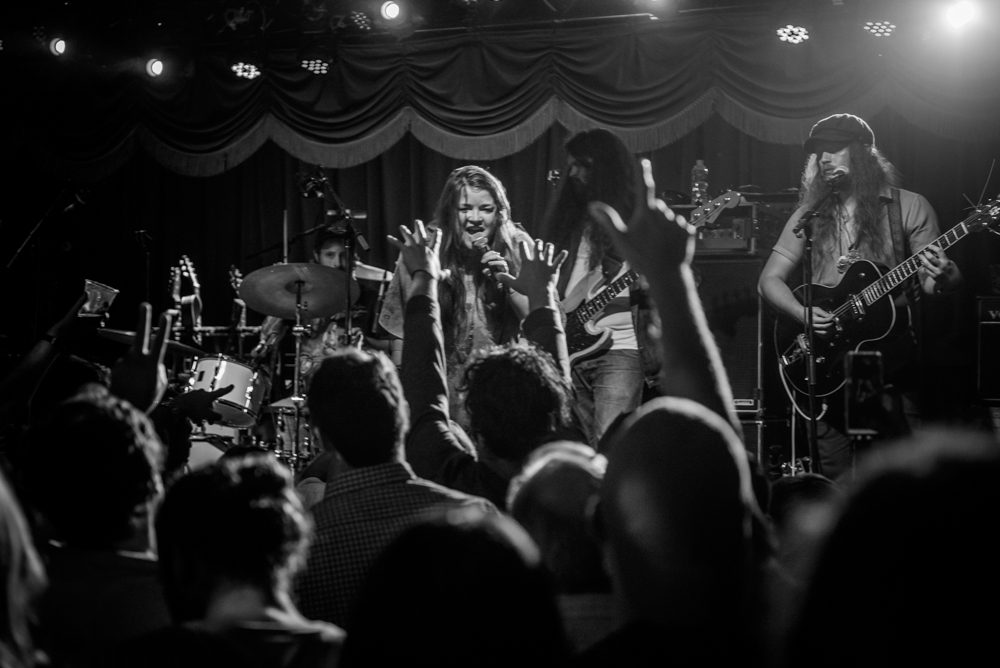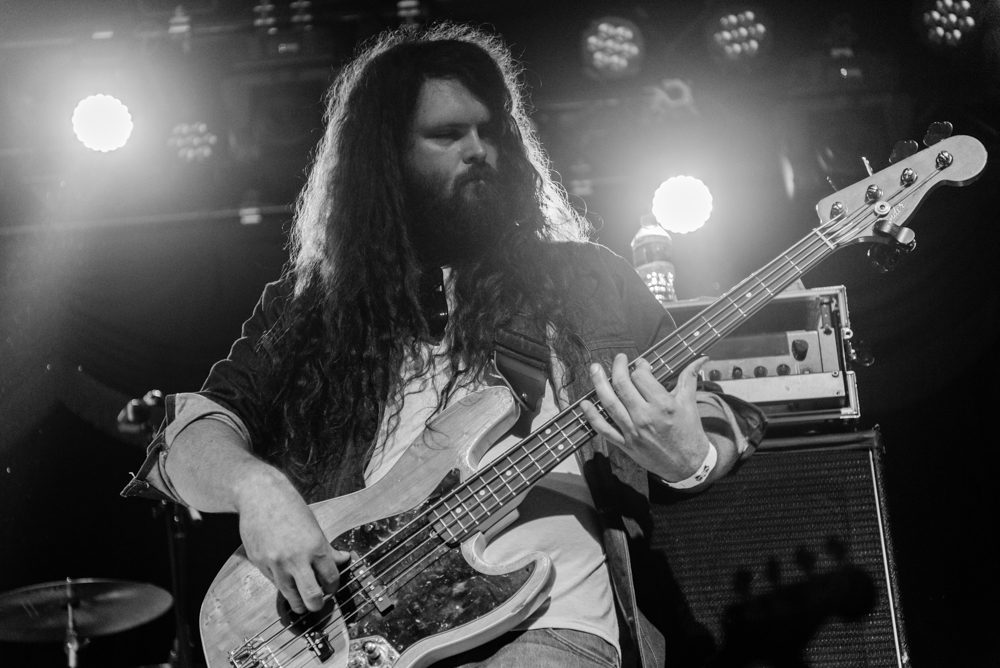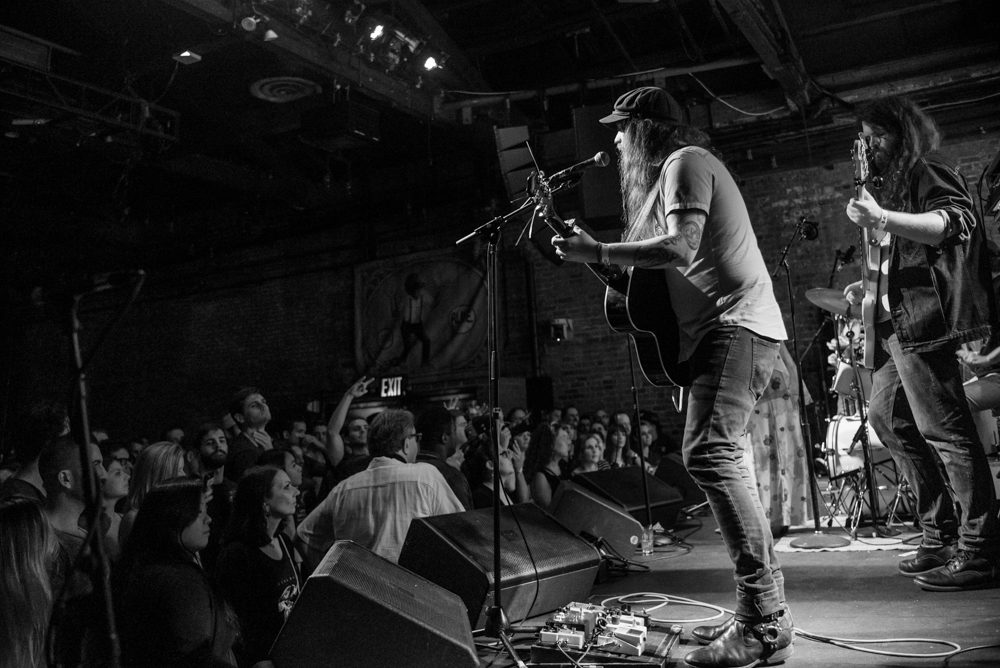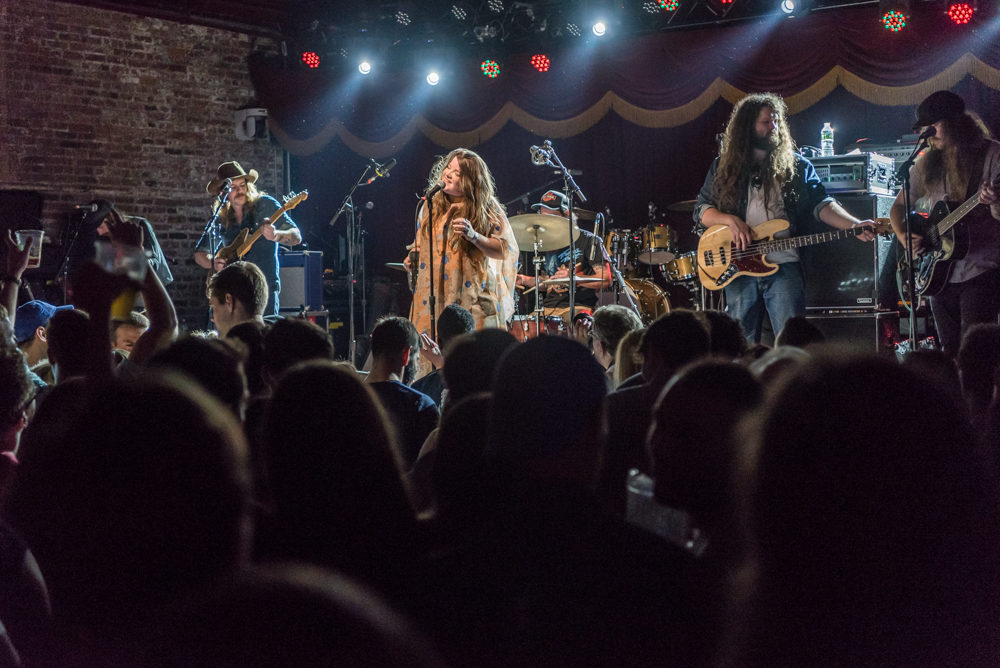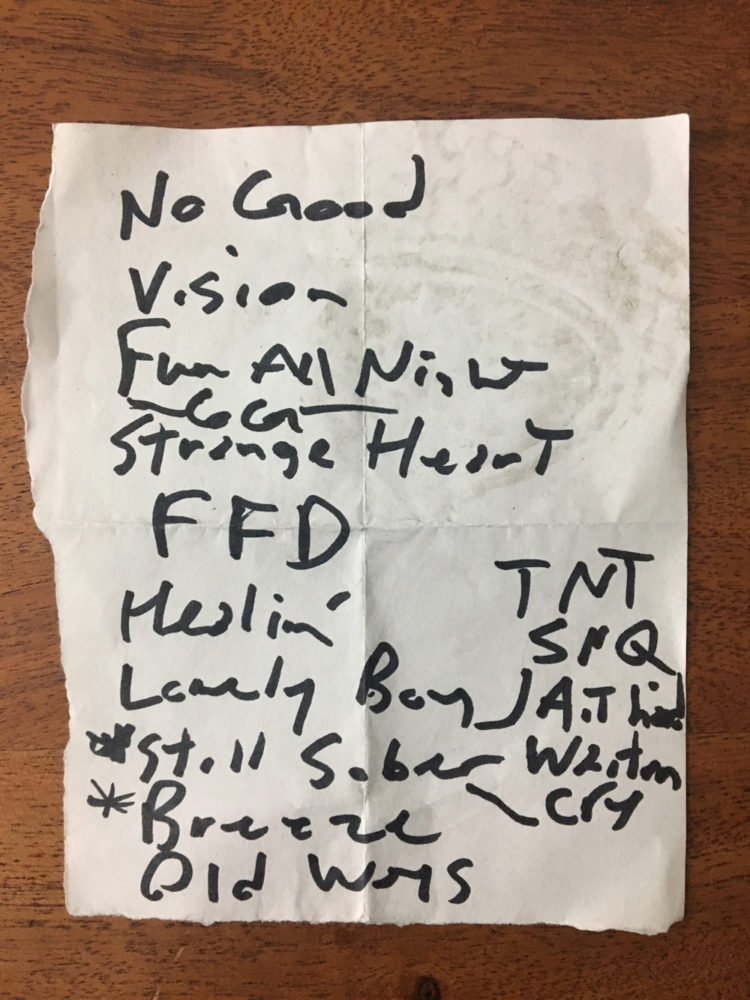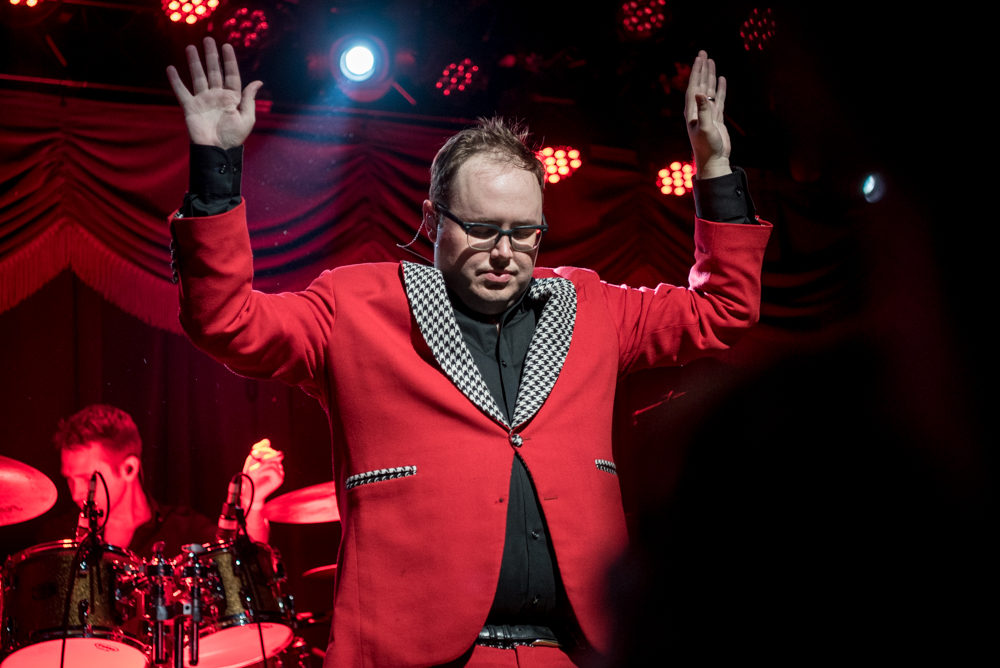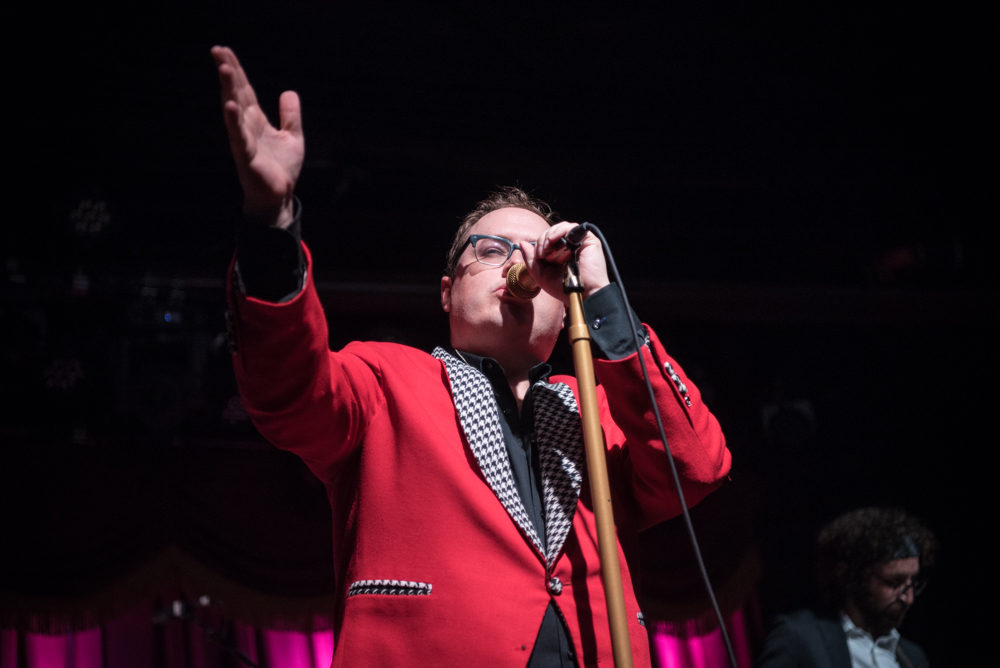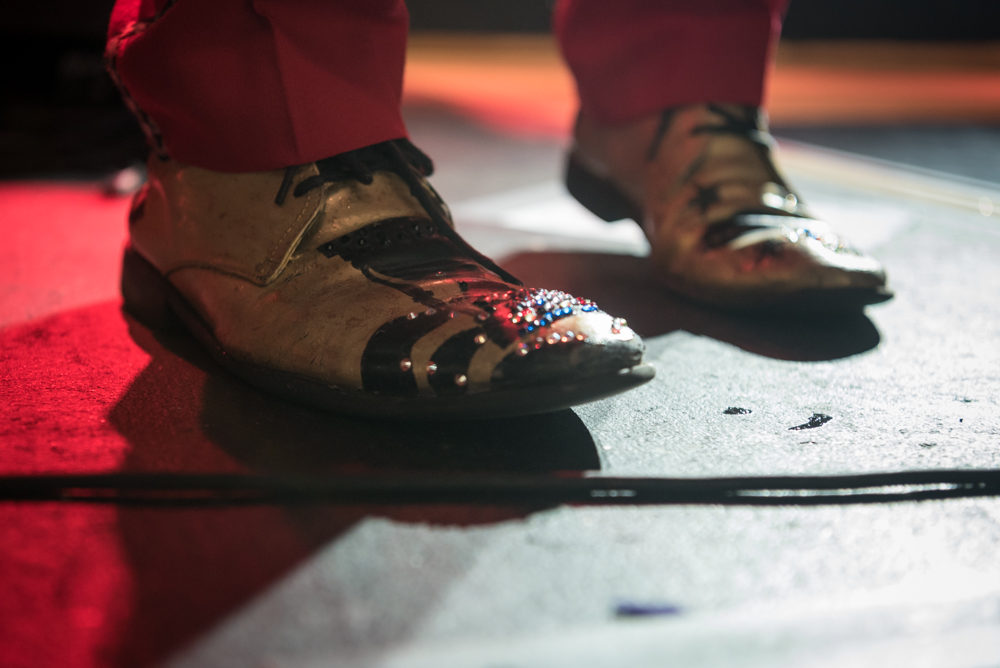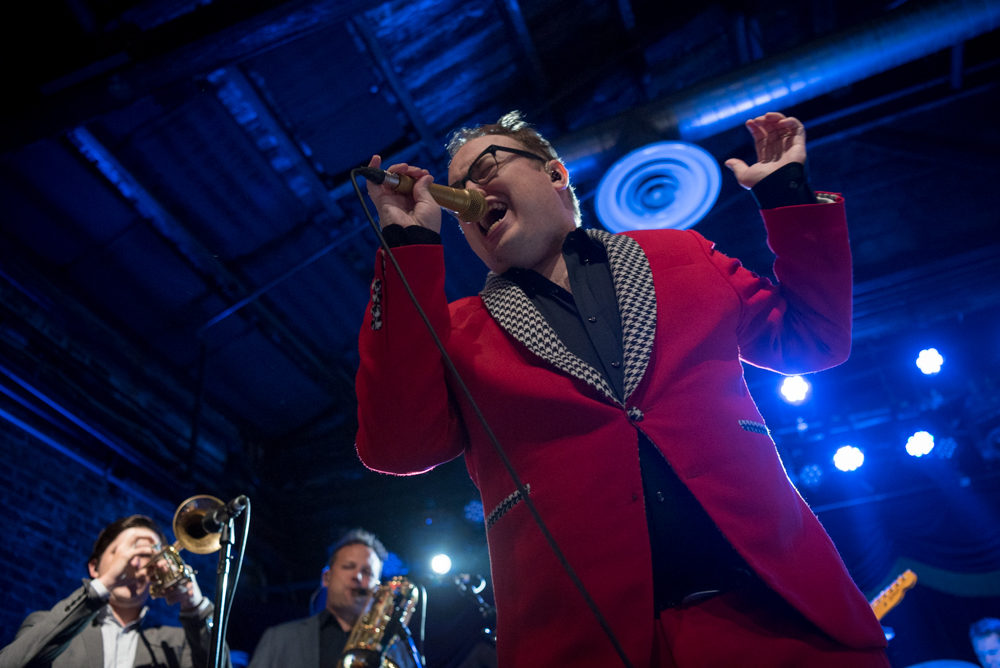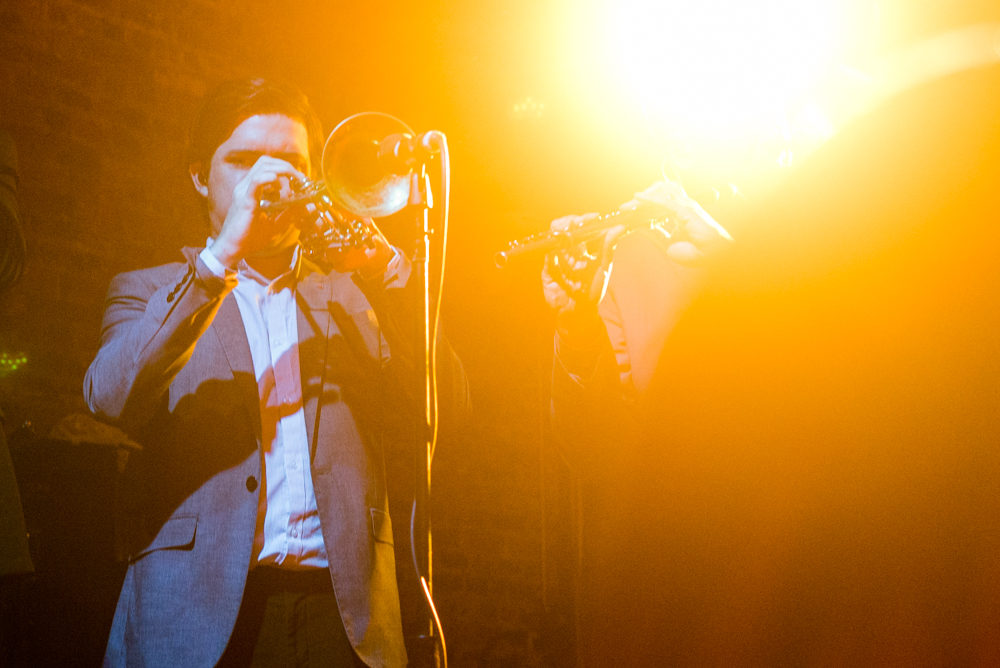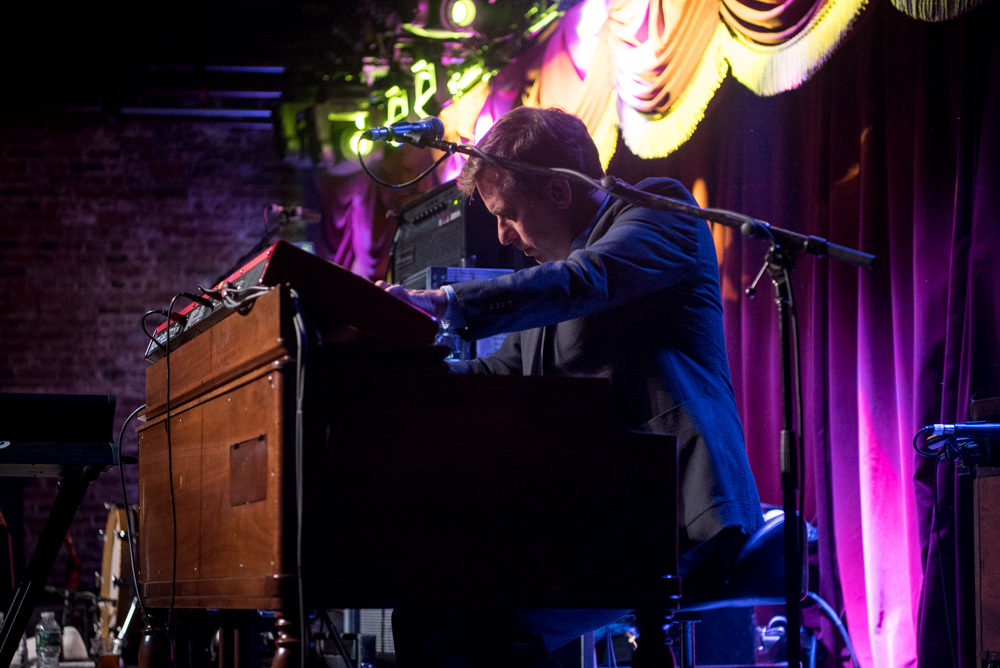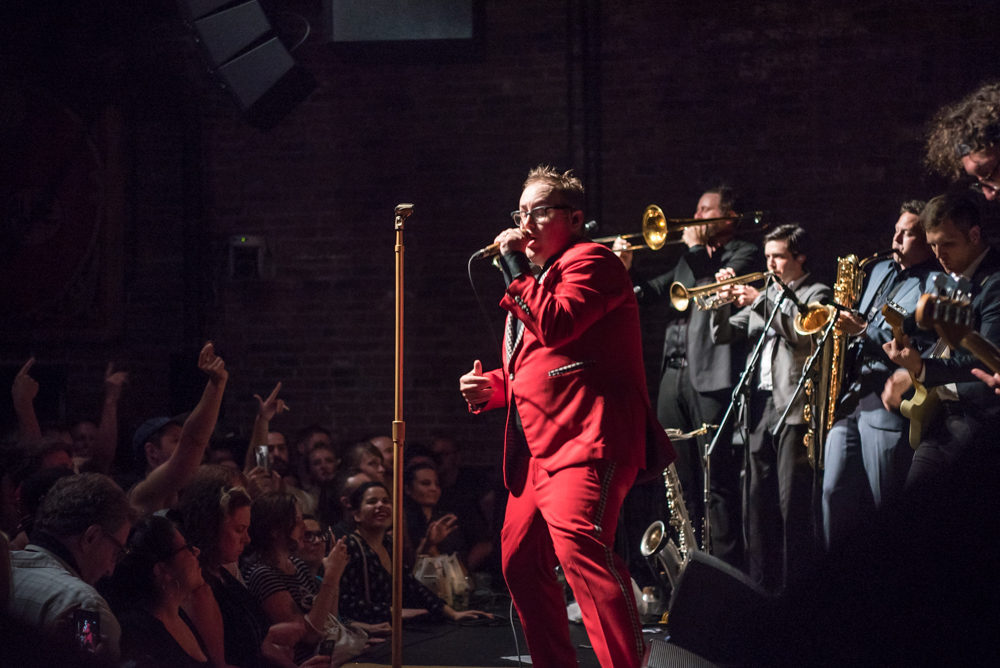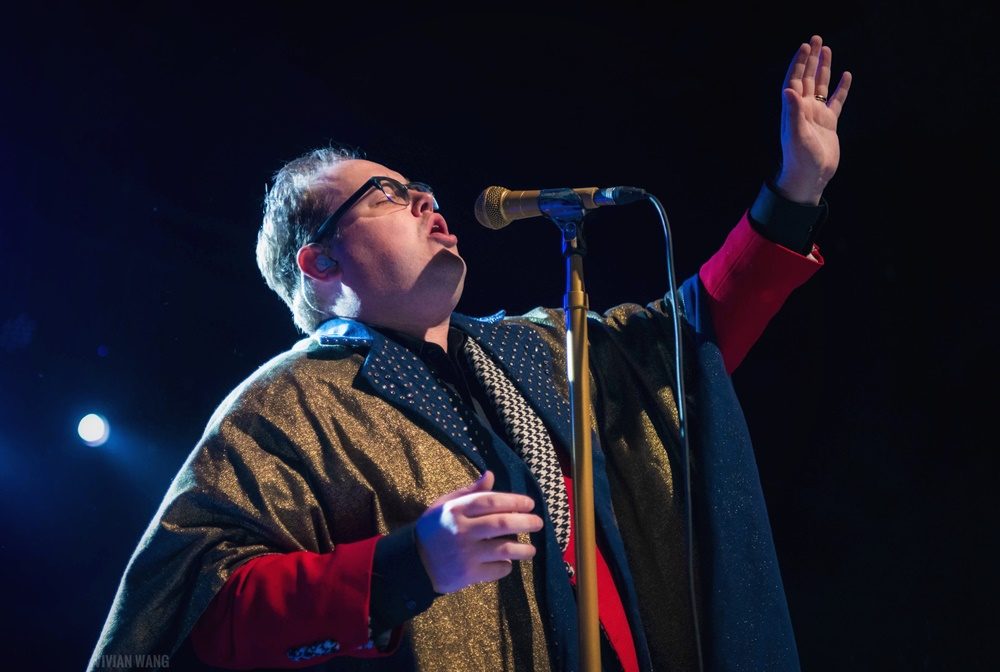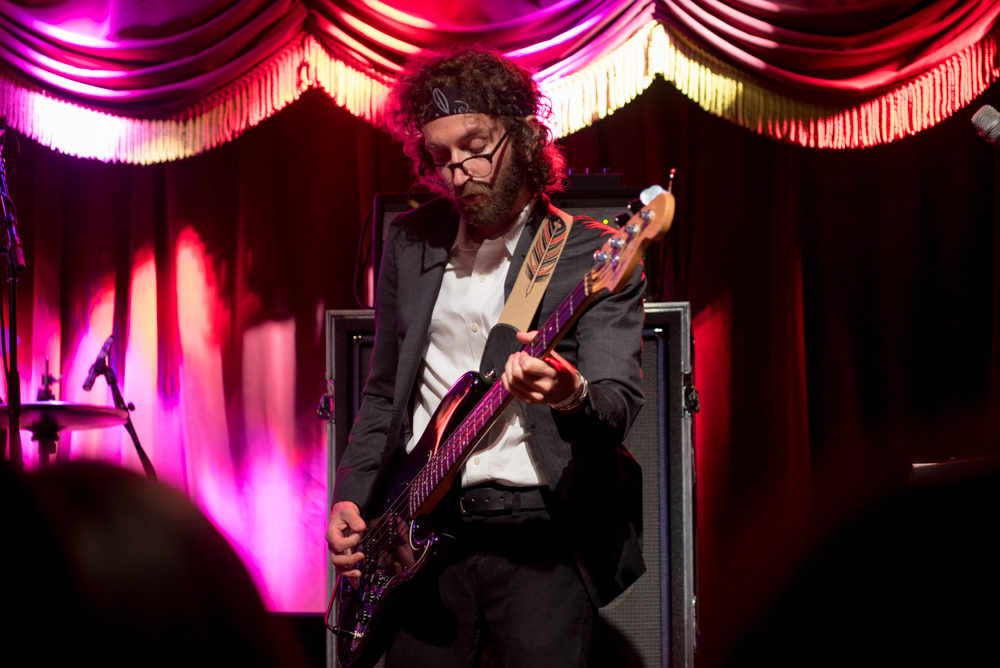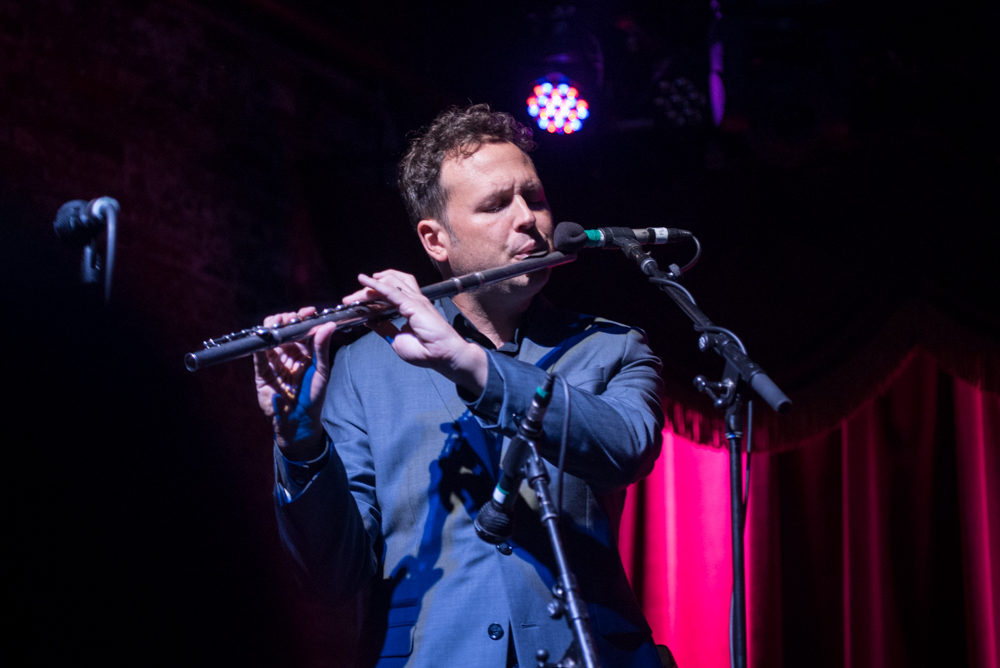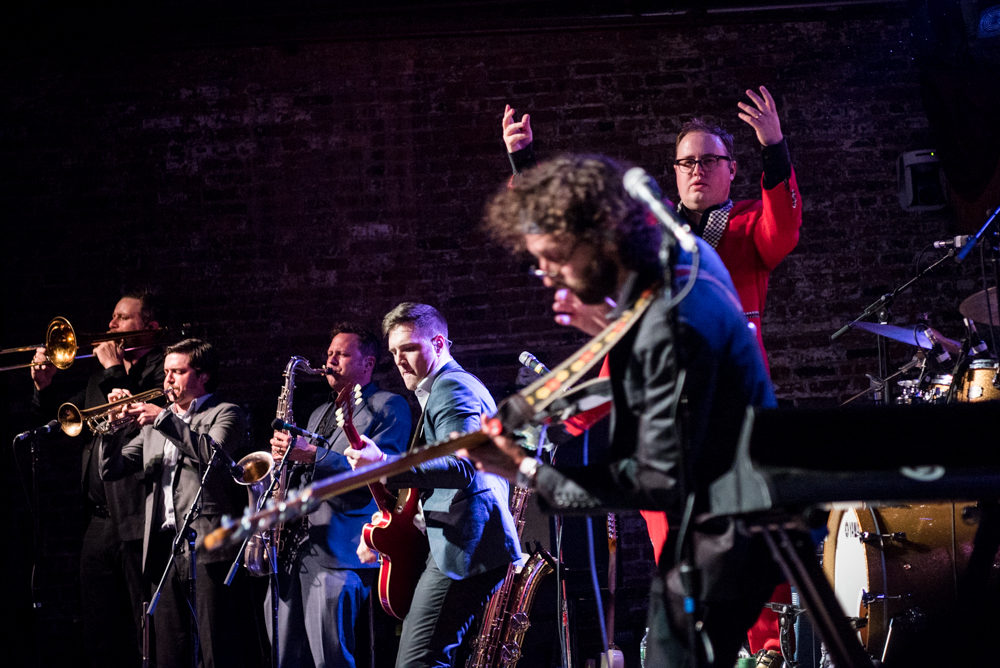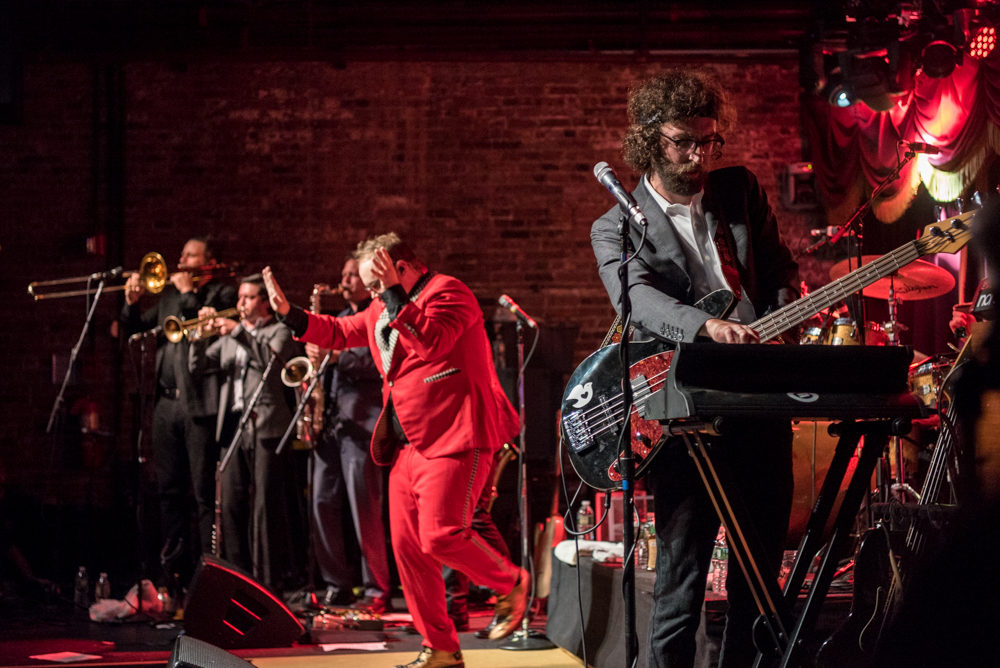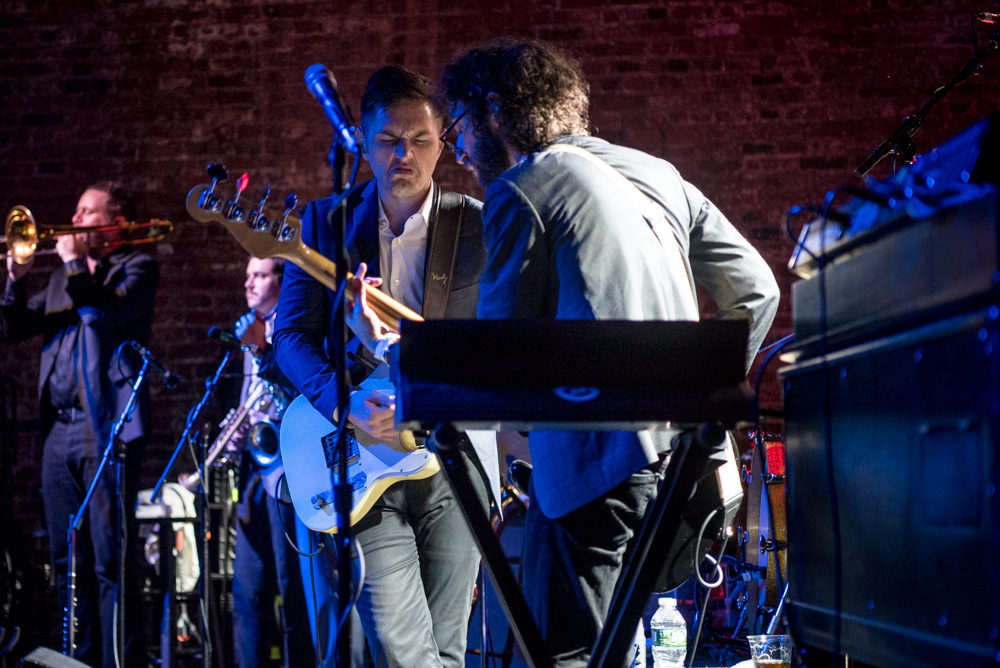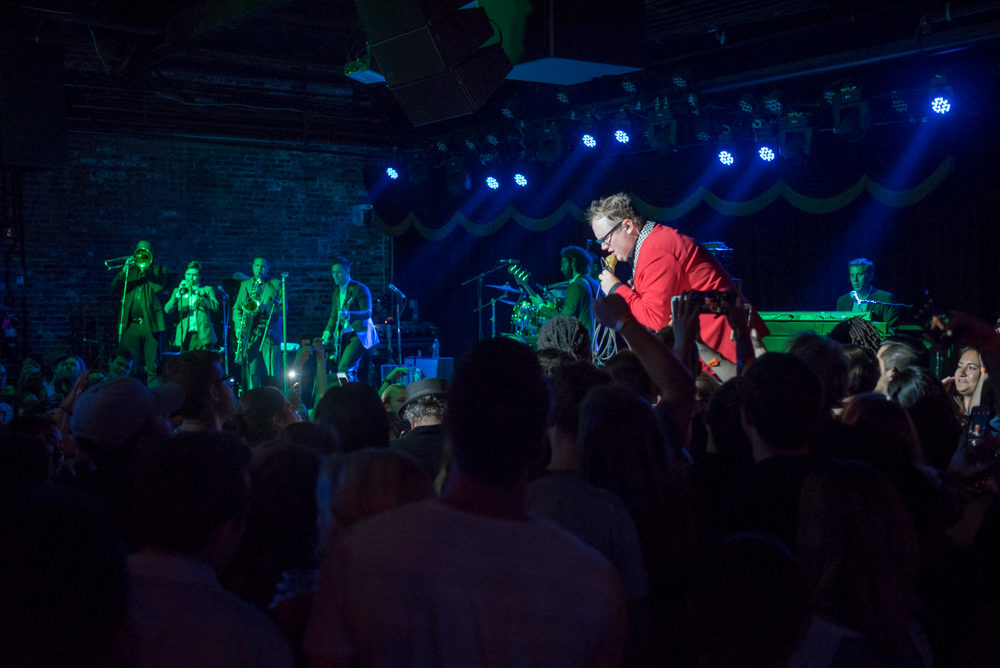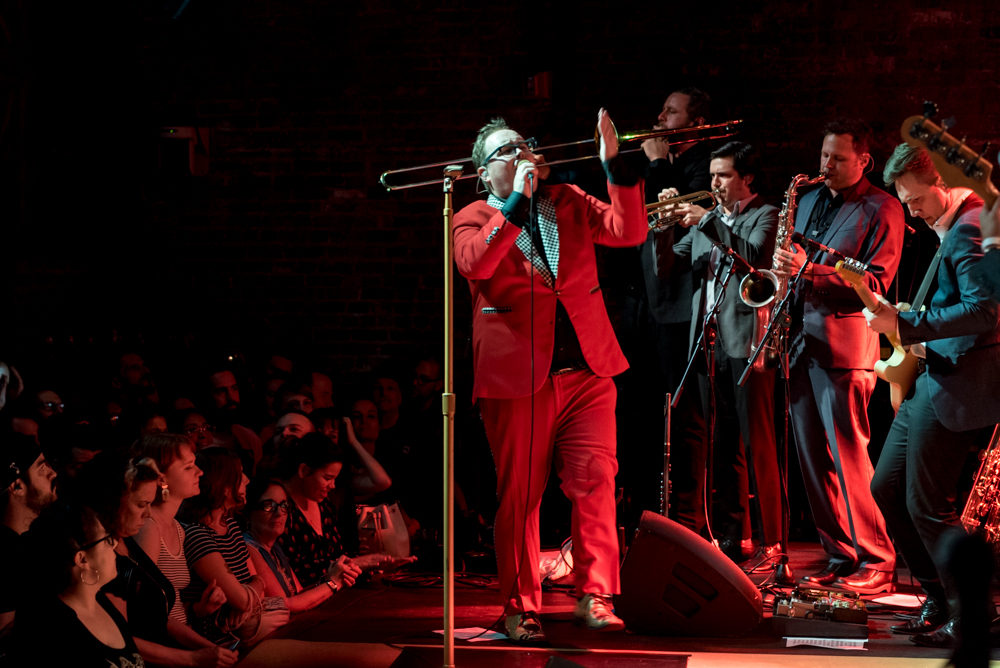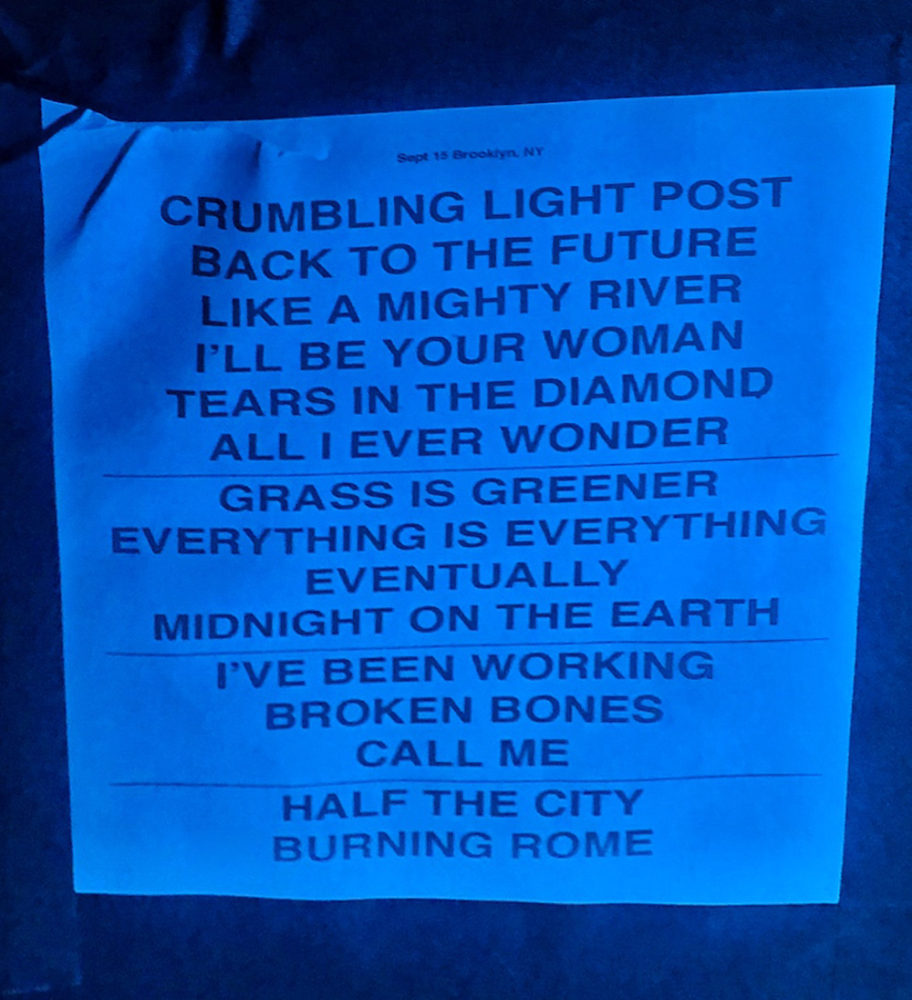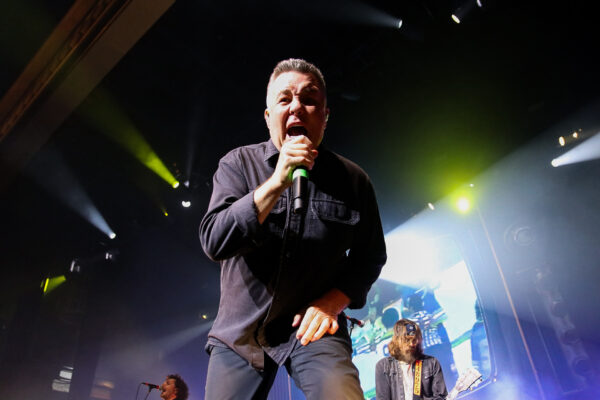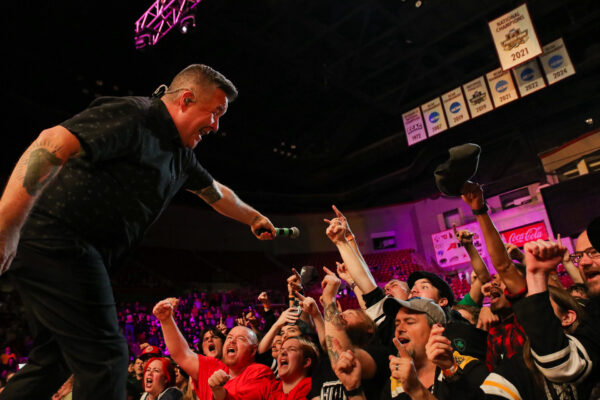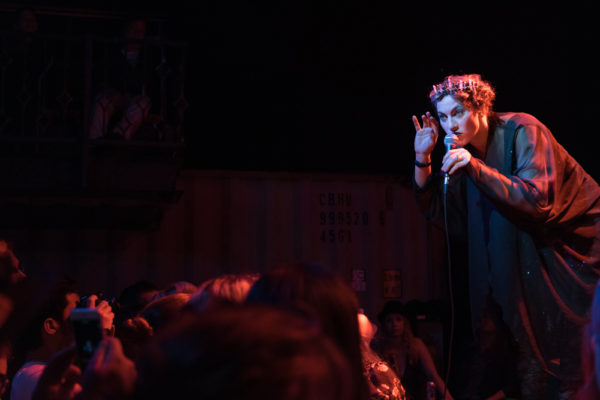On a balmy late summer night, the line outside Brooklyn Bowl wrapped around the block. A pair of concertgoers informed me that this was their seventeenth time seeing the bands. To conjure up the performance that inspires this devotion, close your eyes and imagine the likes of Janis Joplin and Otis Redding reincarnated, tackling the messy landscape of the 21st century in magnificent style. Those seminal figures are the oft-drawn-upon comparisons for the supercharged vocals that form the core of Banditos and St. Paul & the Broken Bones.
Banditos—an Alabama-raised, Nashville-based six-piece—released their sophomore EP, Visionland (Bloodshot Records) earlier this year. Beyond the album cover of a shadowy psychedelic scene is a vibrant vista indeed. The trading-off of vocals between Mary Beth Richardson, Corey Parsons, and Stephen Pierce takes us through a landscape with signposts of garage rock and soul and country. The sound may not be easily classifiable, but the result is certainly identifiable, alternating bittersweet yearning in songs like “Strange Heart” and “Healin’ Slow” with adrenaline-charged tracks like “Fine Fine Day,” propelled forward by the stylings of Jeff Salter’s guitar and the rhythmic backbone created by Randy Wade (drums) and Danny Vine (bass). The album name draws on phantasmagoria of late capitalism—VisionLand was a sprawling theme part constructed in the late ‘90s near the Bessemer, Alabama, childhood homes of some of the band members. The amusement park, built on a borrowed $60 million (largely of public funds), filed for bankruptcy five years later—a seeming metaphor for the mortgaging of the increasingly-elusive American dream, reflected in the narrative of “Fine Fine Day”: Been bustin’ my ass, got nothin’ to show / The weight of the world is such a heavy load. These weighty subjects are explored with a youthful flippancy (steppin’ in shit when your kicks are nice) and colorful textures, including from Pierce’s banjo.
After the Banditos’ exuberant, tambourine-shaking set got the capacity crowd all sweaty, St. Paul and the Broken Bones took the stage with signature flair. Paul Janeway—a strong contender for the title of best-dressed frontperson—started off the set with a luminous rendition of “Crumbling Light Posts,” shedding a shimmery gold robe to reveal a bright red suit. (His outfit was completed with a pair of bronze-and-bejeweled dress shoes, perfect for cutting dance moves across the floor.)
Janeway’s rafter-shaking, no-holds-barred voice sound like something from another era. The Birmingham band’s frontman was groomed to be a preacher, though he wryly and readily admits that “if me and God had a Facebook status, it would be ‘complicated.’” Gospel and Deep South roots are apparent in the music, and the set invoked a revival atmosphere—the grasping of hands as Janeway moved about the room, the call-and-response invocations, the brow-mopping—a fiery communal confessional.
St. Paul & the Broken Bones’ second album, Sea of Noise (RECORDS)—is a radiant exploration of a complex changing landscape, with tracks like “I’ll Be Your Woman” cheekily flipping the script (Oh sweet girl, how you rescue me … I’ll be your woman). Janeway doesn’t shy away from difficult topics, exploring the fracturing of contemporary society along fault lines old and new in “All I Ever Wonder” as he contemplates how we ain’t ever gonna sing one song / love goes, hate goes, now I am left all alone.
Sea of Noise is a stunner of an album from start to finish, with guitarist Browan Lollar, keyboardist Al Gamble, drummer Andrew Lee, and bassist Jesse Phillips building robust songs brightened by horns courtesy of llen Branstetter (trumpet), Jason Mingledorff (saxophone, clarinet, flute),and Chad Fisher (trombone).
It was a high-voltage evening from start to finish, showcasing the young standard-bearers of Americana traditions and challenging, in delightful fashion, preconceptions of how southern heritage and sociopolitical values intersect.
Article: Vivian Wang

